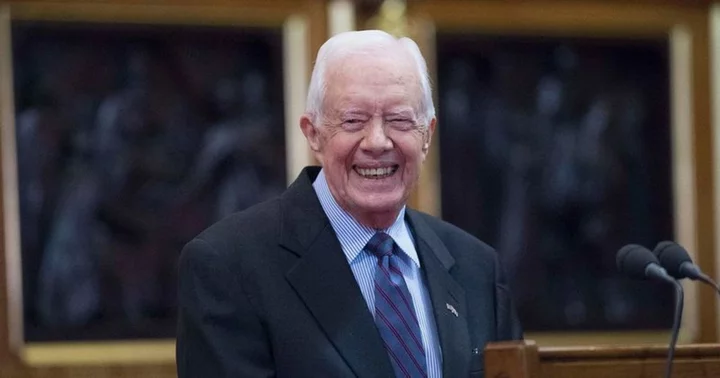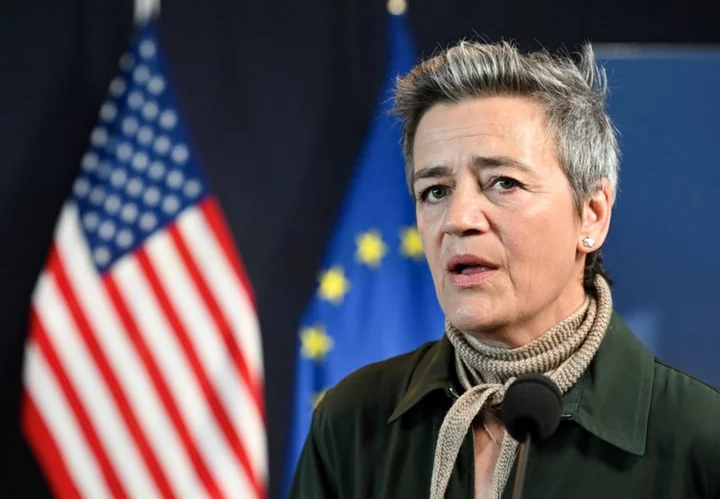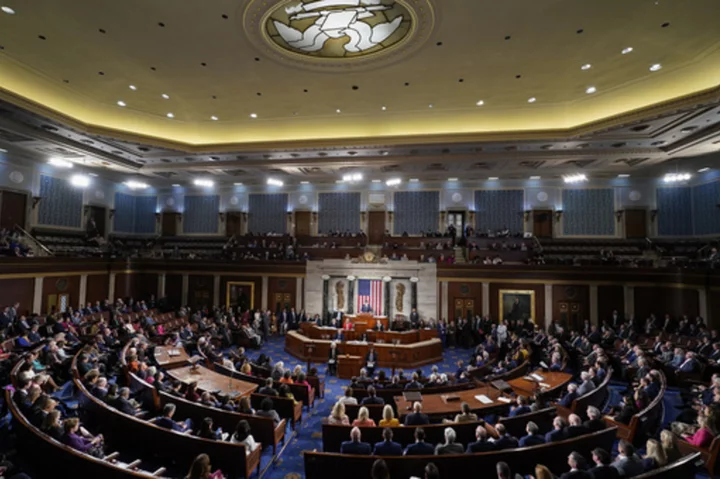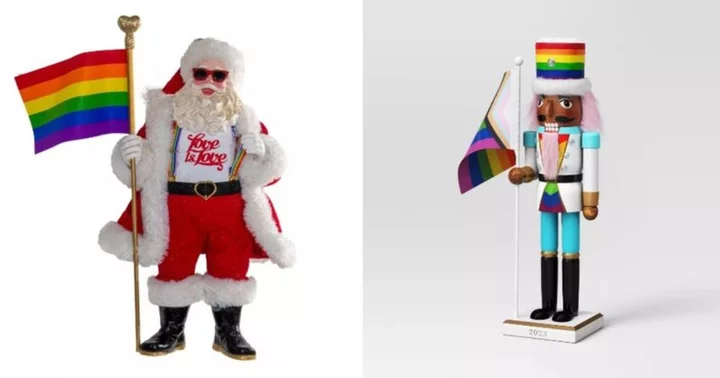WASHINGTON DC: On October 11, 2002, the world celebrated as former US President Jimmy Carter was honored with the Nobel Peace Prize.
The Norwegian Nobel Committee recognized his unwavering dedication to finding peaceful solutions to international conflicts, advancing democracy and human rights, and promoting economic and social development.
This honor was a testament to the remarkable journey of a peanut farmer from Georgia who had served a single term as POTUS from 1977 to 1981.
Mediating peace in the Middle East
One of the key highlights of Carter's presidency was his instrumental role in mediating the peace talks between Israel and Egypt in 1978, a historic achievement that significantly contributed to the stability of the region.
Interestingly, the Nobel Committee had considered granting Carter the prize alongside Anwar Sadat and Menachim Begin in that very year. However, a technicality prevented this recognition – he had missed the official nomination deadline.
Dedication to human rights
After leaving the presidency, Jimmy Carter and his wife, Rosalynn, founded the Atlanta-based Carter Center in 1982.
This non-profit organization was established with a mission to advance human rights and alleviate human suffering. One of their prominent initiatives, which began in 1984, was partnering with Habitat for Humanity to build homes and raise awareness about homelessness.
The Carters' dedication extended beyond American borders. They embarked on missions to fight diseases and improve economic growth in developing nations too. Carter also served as an observer in numerous political elections worldwide, ensuring transparency and fairness in the electoral process.
Jimmy Carter's Nobel Peace Prize recognized his humanitarian ethos
Jimmy Carter's Nobel Peace Prize was not just a personal achievement but a reflection of his commitment to making the world a better place. He became the third US President to receive this prestigious award, following Theodore Roosevelt in 1906 and Woodrow Wilson in 1919. Notably, another former US President, Barack Obama, would join this esteemed list in 2009.
Gunnar Berge, who chaired the Nobel Committee, highlighted Carter's surprise and happiness when informed of the award. The prize, accompanied by a check for approximately $1 million, was a testament to Carter's exceptional contributions to global peace and diplomacy.
What did Jimmy Carter say in his Nobel Prize acceptance speech?
Two months after receiving the Nobel Peace Prize, Jimmy Carter delivered a poignant acceptance speech in Oslo. He emphasized, “War may sometimes be a necessary evil. But no matter how necessary, it is always an evil, never a good. We will not learn to live together in peace by killing each other’s children."
He cautioned against the principle of preventative war, which was pertinent to the context of President George W Bush's plans for an American-led invasion of Iraq. "For powerful countries to adopt a principle of preventative war may well set an example that can have catastrophic consequences,” Carter warned.
Following his defeat in the presidential election to Ronald Reagan, Jimmy Carter and his wife, Rosalynn, established the Carter Center in Atlanta.
Jimmy Carter's perspective on human rights is encapsulated in his statement: “America did not invent human rights,” Carter said. “In a very real sense, human rights invented America.”
In recognition of his unwavering dedication to peace and the well-being of mankind, the Nobel Committee praised Jimmy Carter as the most outstanding former US president in terms of his commitment to human rights. “He has shown outstanding commitment to human rights and has served as an observer at countless elections all over the world,” it noted in its citation.
“He has worked hard on many fronts to fight tropical diseases and to bring about growth and progress in developing countries. Carter has thus been active in several of the problem areas that have figured prominently in the over one hundred years of Peace Prize history,” the panel added.
Jimmy Carter's lifelong commitment to humanitarian causes and diplomacy
Jimmy Carter's life story is one of dedication to humanitarian causes and diplomacy. After losing his re-election bid to Ronald Reagan, he continued to work tirelessly for the betterment of humanity.
The Carter Center announced in February 2023, "After a series of short hospital stays, former US President Jimmy Carter today decided to spend his remaining time at home with his family and receive hospice care instead of additional medical intervention."
In the annals of Nobel Peace Prize history, Jimmy Carter stands as one of the finest former US Presidents to have received this prestigious honor.









